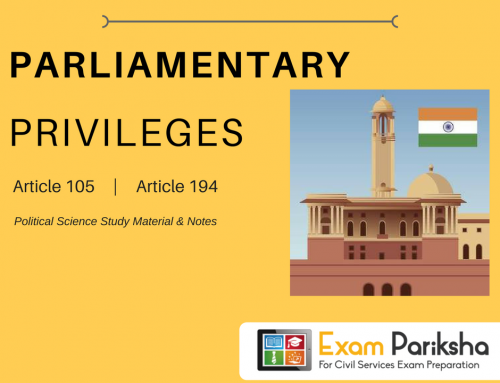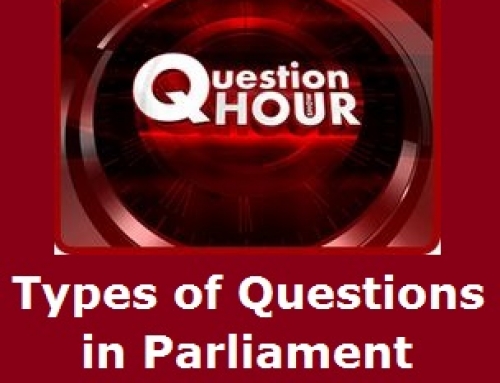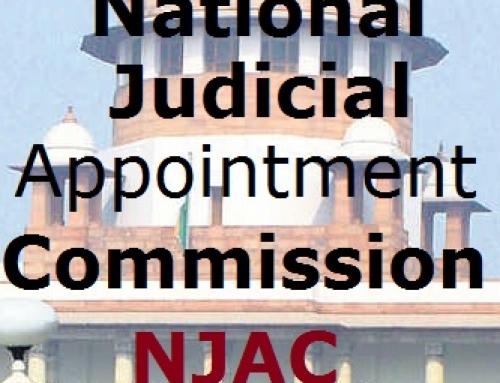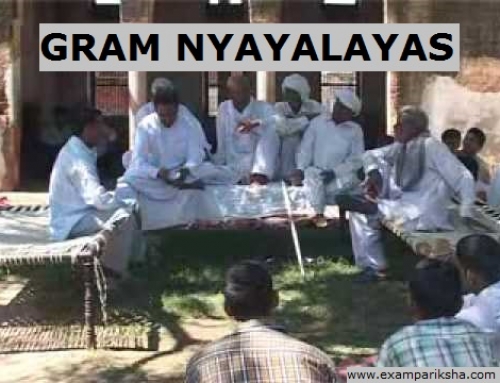The functions and powers of the Union Parliament can be divided into legislative, executive, financial and other catagories.
Legislative Functions:
- Primarily the Parliament is a law-making body. And the constitution has divided the subjects over which Parliament can make laws. In Part XI of the Constitution, there are three lists mentioned, namely – Union List, State List and the Concurrent List.
- The Constitution empowers only Parliament to make laws on the subjects mentioned in the Union List.
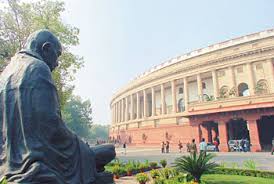
- Also, the Parliament can make laws on the Concurrent List along with the State Legislatures.
- When both, the Union as well as the State legislatures make a law on subject of Concurrent List, then the Parliament’s law will prevail upon the state law in case of a conflict.
- Residuary powers: For subjects which are not mentioned in any of the three lists,the parliament has power to make laws.
- Therefore, the law making capacity of the Parliament is very wide in its coverage and effect. It covers the Union List, Concurrent List, and even the State List under some circumstances.
The Executive Functions:
There is a close relationship between the legislature and the executive in parliamentary form of government. Here the executive( includes Prime Minister and his Council of Ministers ) is responsible towards the legislature, individually as well as collectively for all its actions. Parliament is empowered to maintain its control over executive through various ways. Some of them are :-
- The members of Parliament can ask questions and supplementary questions regarding matters of affairs of the Government.
- Question Hour :The first hour of every working day of Parliament relates to the Question Hour in which the Ministers have to answer the questions raised by the members.
- The Parliament has control over the executive through several motions.There nuances are: the calling attention notice or adjournment motion are for matters of urgent public importance. The government takes such motions very seriously because there government’s policies are severely criticized, this affects ruling party’s poll prospects. If such a motion is passed, it means that the government is censured.
- Censure Motion: This motion is meant to severe indictment of the government; but it does not require resignation of the Council of Members.
- The Lok Sabha is empowered to express its lack of confidence in the executive by disapproving budget or money bill, or even any ordinary bill.
The Financial Functions:
The Parliament is the custodian of the public money. Hence,it controls the entire purse of the Central Government. And no money can be spent by the government without the approval of parliament. The annual budget is approved by the Parliament every year in the budget session.
The Electoral Functions:
The elected member of Parliament are also members of the Electoral College for Presidential election. They also elect the Vice-President. The Lok Sabha elects its Speaker and Deputy Speaker and the Rajya Sabha gets to elect its Deputy Chairman among themselves.
Power of Removal/impeachment:
Parliament is empowered to remove high functionaries from office on the grounds mentioned in the Constitution. The President of India, Vice president of India, judges of Supreme court and High court can be removed through the process of impeachment.
Functions of parliament Regarding the Constitutional Amendment:
Parliament can amend large parts of the Constitution apart from its basic structure by the procedures mentioned in the constitution for amendment. The basic structure of constitution has already been discussed here. Procedure for amendment of constitution can be read here.
Therefore, the Indian Parliament, has wide functions to perform while being limited by the federal structure of the political system in the country. It performs the functions as an agent for resolution of socio-economic or socio-political conflicts of the country. Parliament is responsible for building consensus on certain controversial issues of the country.
An understanding of functions of parliament is essential for understanding the political scenario of the country.


